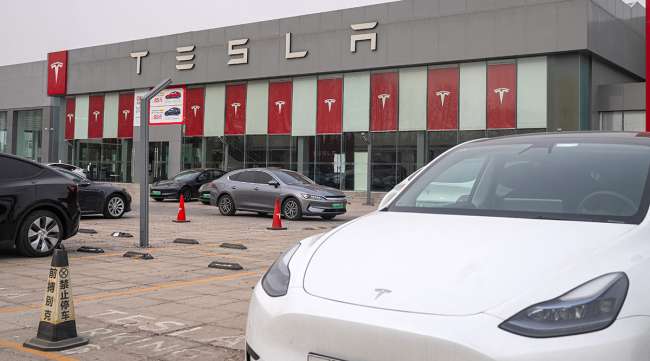Tesla Inc., a company widely regarded as a leader in electric vehicle innovation, has faced its worst trading day in over four years. On March 10th, 2025, the stock plummeted by 15%, marking a steep decline not seen since 2020. Investor confidence has been shaken as Wall Street analysts lowered sales and delivery projections for the company’s electric car lineup.
The Trigger for the Sell-Off
The dramatic sell-off was fueled by revisions to Tesla’s delivery estimates by key market analysts. UBS Group AG’s Joseph Spak recalibrated his forecasts for Tesla’s vehicle deliveries, slashing projections for both the first quarter and the entirety of 2025. Just days earlier, Robert W. Baird & Co. analyst Ben Kallo also issued reduced delivery estimates for the company. These announcements raised significant concerns among investors about declining demand for Tesla’s vehicles, which has traditionally been a major strength for the company.
Investors are known to keep a close eye on delivery numbers as a critical indicator of a company’s health and growth potential. The revised projections have sparked fears of a more widespread slowdown in the electric vehicle market, with Tesla’s position as a dominant player now being called into question.
Mounting Pressures on Tesla
Tesla’s stock turbulence is not an isolated event but rather a culmination of growing pressures. Among the challenges the company is facing are thinner auto profit margins, increased regulatory scrutiny in the United States, and intensified global competition in the electric vehicle space.
Auto profit margins at Tesla are being compressed as the company continues to adjust its pricing strategy to stay competitive. While price cuts on various Tesla models have increased accessibility for buyers, they’ve also exerted pressure on the company’s bottom line.
Adding to this, Tesla’s operations are under the microscope from U.S. regulators. A federal safety investigation into the company’s handling of its autonomous driving features is ongoing, potentially complicating Tesla’s efforts to maintain its position as a pioneer in automotive technology.
Broader Market Implications
For investors and market analysts, Tesla’s declining stock reflects broader concerns about market saturation and the global electric vehicle (EV) sector’s ability to maintain its staggering growth trajectory. Several traditional automakers, including legacy brands, have accelerated their portfolios of electric vehicles, increasing pressure on Tesla to differentiate itself further.
Additionally, the company’s performance comes amid a backdrop of fluctuating macroeconomic conditions. Rising interest rates and inflation-driven cautiousness among consumers may also be reducing demand for high-ticket items such as electric cars.
What This Means for Tesla Enthusiasts and Investors
Tesla’s recent market performance heightens the importance of addressing core challenges. For investors, the question becomes whether this is a temporary adjustment based on external factors or the beginning of a fundamental shift in Tesla’s growth story.
For Tesla enthusiasts, there’s hope that innovation and an established brand reputation will enable the company to weather the storm. CEO Elon Musk has touted ambitious plans for continued product development, with technological advancements and expansion into emerging markets aimed at shoring up long-term success.
Looking Ahead
While the stock slump has raised alarms, Tesla’s resilience will depend largely on its ability to respond to market challenges head-on. Analysts and investors will be watching future delivery numbers closely, as well as management’s strategy to maintain market competitiveness and profitability.
For those keeping an eye on the EV giant, the current dip may represent an opportunity to evaluate Tesla’s value proposition in a rapidly evolving automotive and technology landscape.
Final Thoughts
Tesla’s stock is known for its volatility, and the 15% drop gives reason for concern—but also an occasion to assess its future prospects. Interest in what happens next for Tesla remains high, whether you’re an investor, market analyst, or just a fan of cutting-edge innovation in technology and green energy.
As the company seeks to recover, all eyes will be on how effectively Tesla manages expectations while continuing to push the boundaries of what’s possible in the electric vehicle industry.








